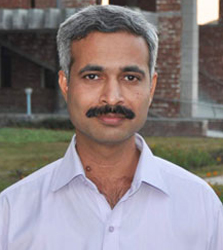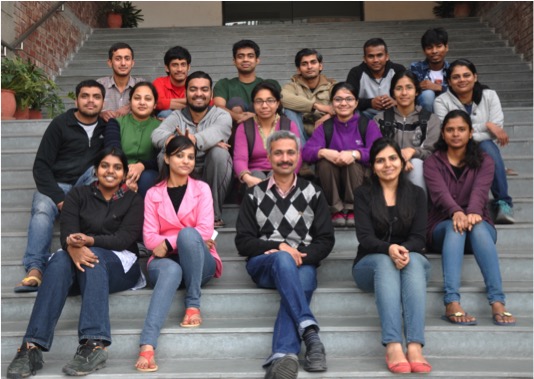Research summary
In promiscuous species, the correlation for fitness between males and females is less than one. Thus, males and females can potentially evolve traits that increase their own Darwinian fitness but harm the fitness of the other sex. This leads to open- ended cycles of adaptation and counter adaptation- a form of intra-species Red Queen process- often called Intersexual Conflict. Such antagonistic co-evolution between the sexes has been suggested to drive rapid divergence between populations in their life-history and behaviour and act as an engine of speciation. The long term goal of our lab is to understand the interplay between sexual conflict, sexual selection and life-history evolution. Specifically, we are working on (a) Interlocus Sexual conflict, (b) Life-History Evolution and (c) Evolutionary Ecology of immunity.
We use Drosophila melanogaster as a model system. Our approaches include Experimental Evolution, Cytogenetic cloning and Phenotypic manipulations. Our techniques allow us to follow the process of adaptive evolution in real time across replicate populations. More importantly, we can assess fitness and related traits under conditions that are meaningful to the populations.
Visit NGP Lab page for more details
Selected Publications
- Nandy, B., Gupta V., Udaykumar, N., Samant, M., Sen, S. and Prasad, N.G. 2013. Evolution of mate-harm, longevity and behaviour in male fruit flies subjected to different levels of interlocus conflict. BMC Evolutionary Biology 13:212
- Gupta, V., Zeeshan, S. A. and Prasad, N. G. 2013. Sexual activity increases resistance against Pseudomonas entomophila in male Drosophila melanogaster. BMC Evolutionary Biology 13: 185.
- Nandy, B., Vanika, G., Udaykumar, N., Samant, M. A., Sen, S. and Prasad, N.G. 2013.Experimental evolution of female traits under different levels of intersexual conflict in Drosophila melanogaster. Evolution doi:10.1111/evo.12271.
- Imroze, K. and Prasad, N. G. 2013. Adaptive male mate choice in relation to female infection status in Drosophila melanogaster. Journal of Insect Physiology 59: 1017-1023. doi: 10.1016/j.jinsphys.2013.07.010
- Nandy, B., Chakraborty, P., Ali, Z.S. and Prasad, N.G. 2013. Sperm competitive ability evolves in response to altered operational sex ratio. Evolution. doi:10.1111/evo.12076
- Khan, I. and Prasad N. G. 2012. The aging of the immune response in Drosophila melanogaster. Journals of Gerontology: Biological Sciences. doi:10.1093/Gerona/gls144.
- Nandy, B., Abhilasha, J., Zeeshan, S. A., Sharmi, S. and Prasad, N. G. 2012. Degree of adaptive male mate choice is positively correlated with female quality variance. Scientific Reports. doi:10.1038/srep00447
- Imroze, K. and Prasad, N. G. 2011. Mating with large males decreases the immune defence of females in Drosophila melanogaster. Journal of Genetics.90: 427-434.
- Pan-Pan, J., Bedhomme, S., Prasad, N. G. andChippindale, A. K. 2011. Sperm competition and mate harm unresponsive to male-limited selection in Drosophila: An evolving genetic architecture under domestication. Evolution. 65:2248
- Nandy, B. and Prasad, N. G. 2011. Reproductive behaviour and fitness components in male Drosophila are non- linearly affected by the number of male co-inhabitants early in adult life. Journal of Insect Science. 11: 67
Group
For more details on recent activity in NGP group visit our Lab page


